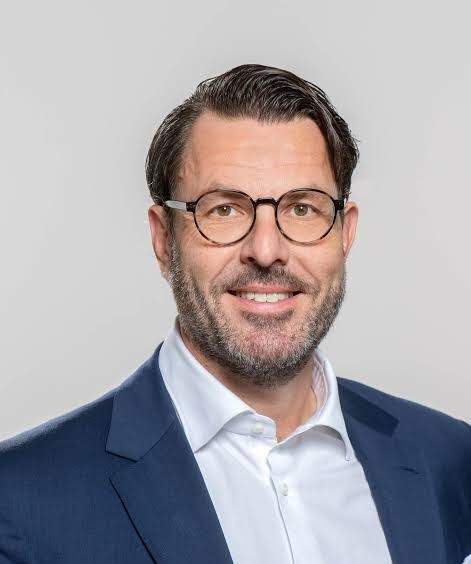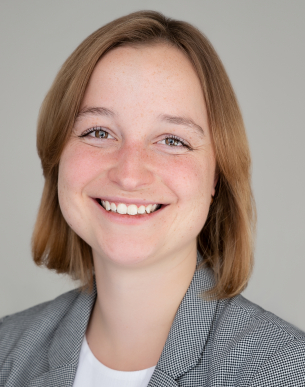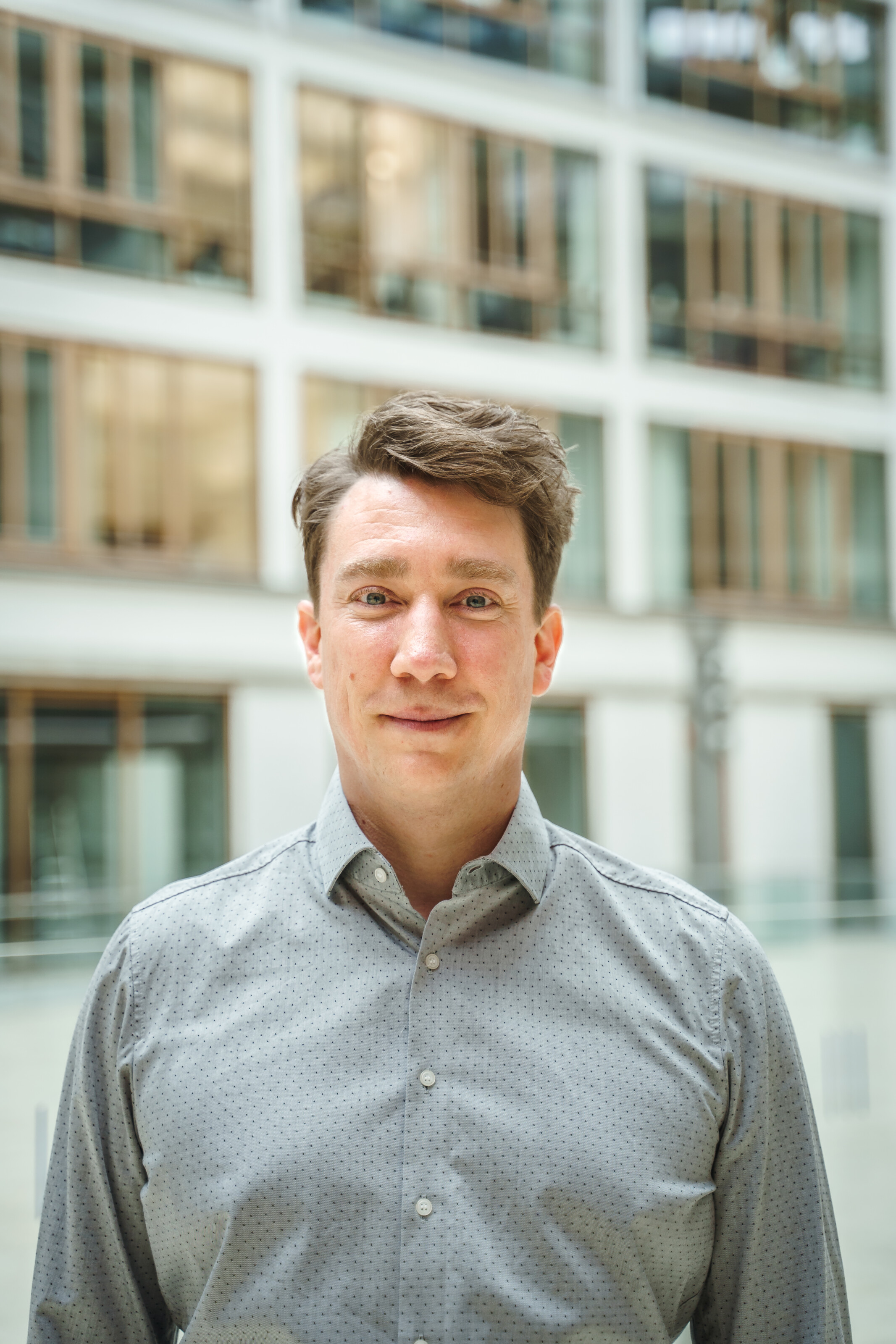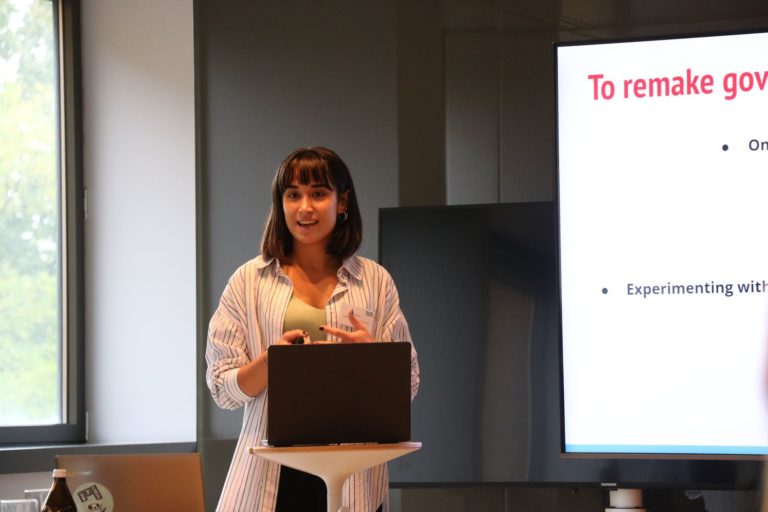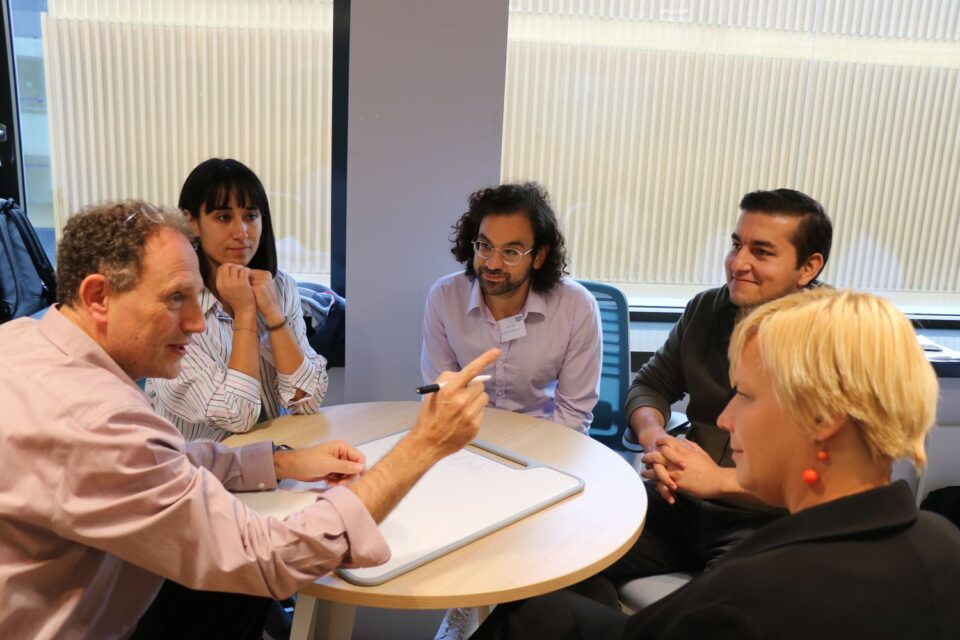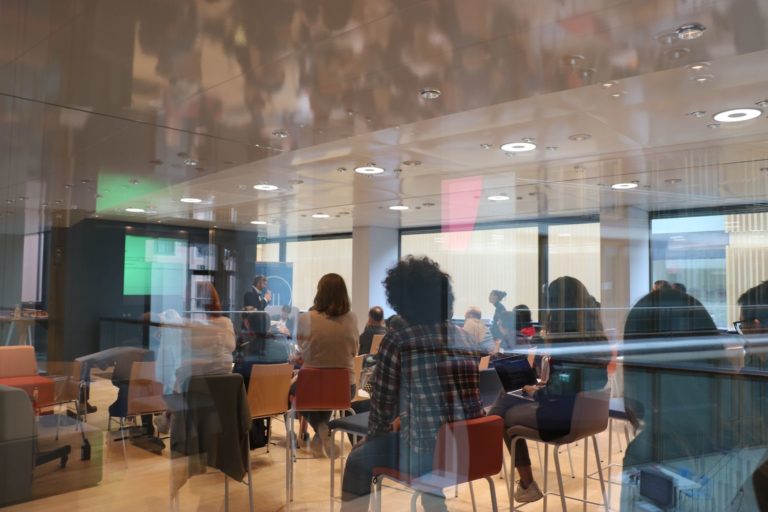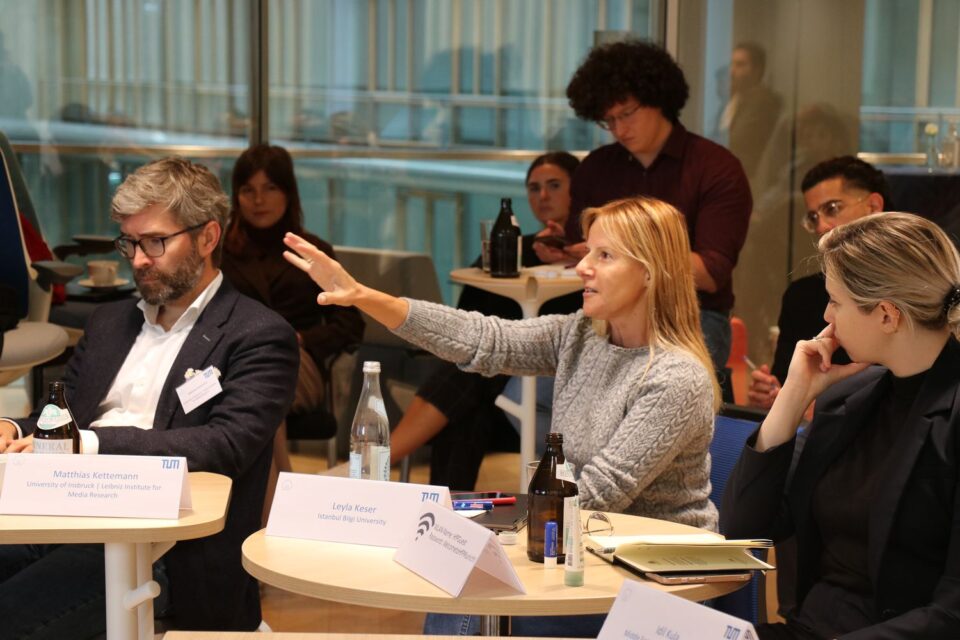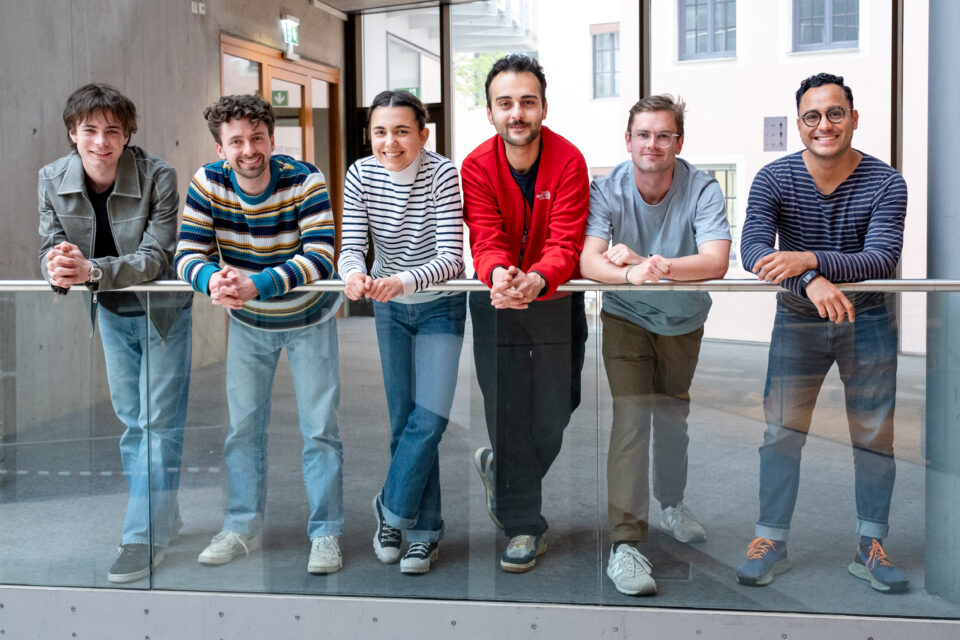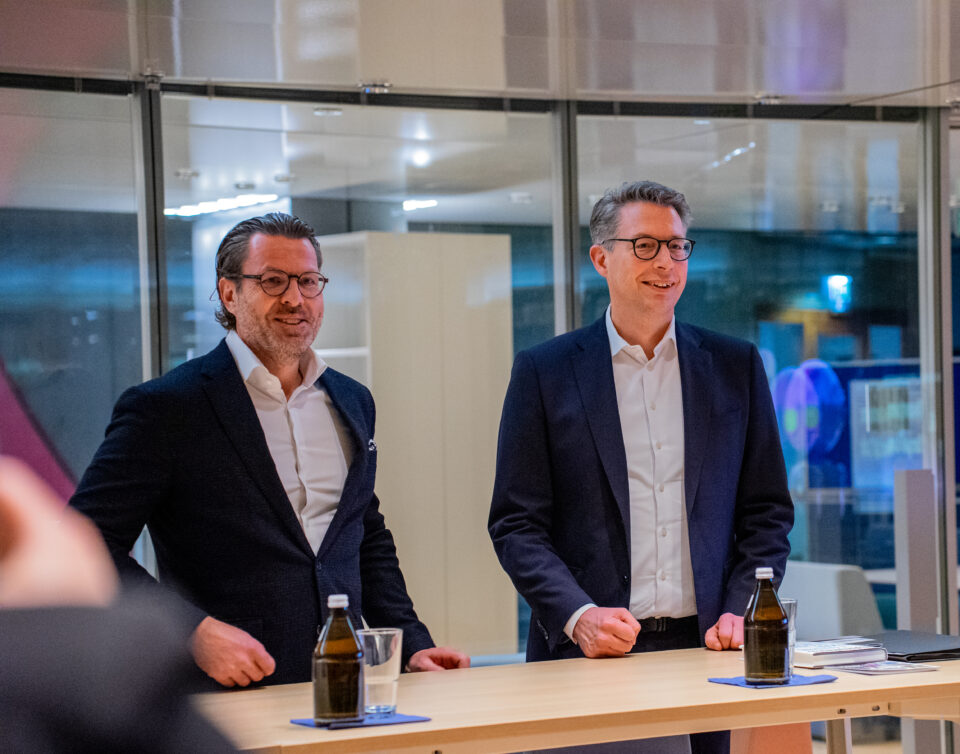
Heute erkunden, wie Quanten morgen die Welt verändern werden.
Über das Lab
Das Quantum Social Lab (QSL) ist ein interdisziplinärer Raum, der sich den gesellschaftlichen, ethischen und politischen Dimensionen der aufkommenden zweiten Generation von Quantentechnologien widmet. Wir sind überzeugt, dass technischer Fortschritt allein nicht ausreicht, um die weitreichenden Auswirkungen dieser neuen Ära zu erfassen. Daher bringen wir Forschende, Studierende, Entwicklerinnen und Künstlerinnen aus unterschiedlichen Disziplinen und Hintergründen zusammen, um die ethischen, rechtlichen und gesellschaftlichen Aspekte dieses entstehenden sozio-technologischen Feldes gemeinsam zu gestalten.
Wie Quantentechnologien verantwortungsvoll gestaltet und reguliert werden können
Aufbauend auf dem ELSPI-Rahmenwerk und seinen Kernprinzipien des Schutzes, Einbezugs und Fortschrittsanalysieren wir bestehende und aufkommende politische Ansätze in verschiedenen Sektoren, um Chancen und Risiken zu identifizieren. In ihrer jüngsten Arbeit zeigen Urs Gasser und Kolleg*innen, dass solche vorausschauenden Ansätze wirksamer sein können als traditionelle, streng rechtlich kodifizierte Modelle – sie schaffen flexible und verantwortungsvolle Wege in sich schnell entwickelnden technologischen Landschaften.
Unsere Forschung überschreitet dabei disziplinäre Grenzen. Wir untersuchen die Schnittstellen zwischen Quantentechnologien, Künstlicher Intelligenz (QAI), Entscheidungsfindung und Neurowissenschaften. Darüber hinaus widmen wir uns zukunftsweisenden Themen wie dem Verhältnis zwischen Quantentechnologien und Bewusstsein und erforschen, inwiefern Quantenalgorithmen kognitive Fähigkeiten widerspiegeln oder neue Zugänge zum Verständnis von Geist und Wahrnehmung eröffnen könnten. Weitere Schwerpunkte liegen auf den regulatorischen und energetischen Implikationen von Quantensystemen sowie auf ihren geopolitischen Auswirkungen, die mit dem Aufkommen der zweiten Generation von Quantentechnologien zunehmen.
Die zentralen Publikationen des Quantum Social Lab verdeutlichen unser Engagement für vorausschauende Governance und interdisziplinäre Forschung. Aufbauend auf dieser Grundlage entwickelt das QSL Frameworks und Instrumente weiter und setzt sie in der Praxis um – um sektorspezifische Herausforderungen und Chancen offenzulegen und verantwortungsvolle Entwicklungswege für die Zukunft der Quantentechnologien zu gestalten:
Español, G. A., & Marco, F. (2025, October). Quantum sandboxes for the majority world: A dual governance approach to innovation and regulation. T20 South Africa.
Aboy, M., Gasser, U., Cohen, I. G., & Kop, M. (2025). Quantum technology governance: A standards-first approach. Science, 389(6760), 575-578.
Gasser, U., & Marco, F. (2025, May 9). Cracking the quantum future of finance. Duckbucks. https://duckbucks.com/a/cracking-the-quantum-future-of-finance
Gasser, U., De Jong, E., Kop, M. (2024). A call for responsible quantum technology. Nature Physics, 9 Apr 2024, Vol 20, 525-527.
Kop, M., Aboy, M., De Jong, E., Gasser, U., Minssen, T., Cohen, I. G., ... & Laflamme, R. (2024). Ten principles for responsible quantum innovation. Quantum Science and Technology, 9(3), 035013.
Marco, F. (2024, July 19). Advancing the quantum innovation paradigm: Using AI governance frameworks to identify gaps within quantum governance strategies and their narratives. Paper presented at the EASST-4S 2024 Conference, Amsterdam, Netherlands. URL: https://nomadit.co.uk/conference/easst-4s2024/paper/85866
Kop, M., Aboy, M., De Jong, E., Gasser, U., Minssen, T., Cohen, I. G., ... & Laflamme, R. (2024). Towards responsible quantum technology: safeguarding, engaging and advancing quantum R&D. UC L. Sci. & Tech. J., 15, 63.
Lehre
Das Quantum Social Lab bietet ein breites Spektrum an Lehrprogrammen an. Unsere Universitätskurse fördern ein interdisziplinäres Verständnis von Quantentechnologien mit besonderem Schwerpunkt auf Quantum Governance. Der Lehrplan beleuchtet zudem die Schnittstelle von Kunst und Quantentechnologien – oft in Zusammenarbeit mit unseren Artists-in-Residence.
Unsere Kurse stehen allen Studierenden der TUM offen und werden mit modernsten Lehrmethoden durchgeführt. Häufig entstehen daraus praxisnahe Anwendungen, Kunstwerke oder wissenschaftliche Publikationen.
Um Interdisziplinarität gezielt zu fördern, können sich besonders engagierte Studierende für das Young Quantum Social Scientists (YQSS) Scholarship bewerben. Dieses Programm unterstützt fachübergreifende Ausbildung, Kompetenzentwicklung und Forschung sowie lösungsorientiertes Arbeiten an realen Herausforderungen.
Young Quantum Social Scientists (YQSS)
Das Young Quantum Social Scientists (YQSS)-Programm ist ein einjähriges Stipendium, das darauf abzielt, die nächste Generation von Wissenschaftler*innen an der Schnittstelle von Quantentechnologien, Politik und Gesellschaftauszubilden und zu befähigen. Das Programm verbindet Forschung, Lehre und praxisorientiertes Engagement und bringt Studierende aus unterschiedlichen Disziplinen und Hintergründen zusammen.
Die Teilnehmenden des YQSS-Programms arbeiten direkt an den Projekten des QSL mit, unterstützen Partnerorganisationen und verfolgen eigene Forschungsinteressen. Zudem sind sie in Initiativen wie der QuantWorld Learning Platform eingebunden und belegen Kurse zu quantentheoretischen Grundlagen, Governance und Ethik, um ein innovatives, interdisziplinäres Verständnis zu entwickeln.
Um ihre Wirkung zu erweitern, präsentieren die Studierenden ihre Arbeiten auf internationalen Bühnen wie Xpanse (Abu Dhabi), SONAR und Quantum Effects – und tragen so dazu bei, dass ihre Perspektiven die wissenschaftlichen wie öffentlichen Debatten über Quanteninnovationen prägen.
QuantWorld
QuantWorld ist ein Leuchtturmprojekt, das vom Bundesministerium für Forschung, Raumfahrt und Technologiemit 1,9 Millionen Euro gefördert wird. Unter der Leitung der Technischen Universität München und in Zusammenarbeit mit Fraunhofer AISEC sowie den TUM Kliniken erforscht das Projekt, wie Quantentechnologien der zweiten Generation Bereiche wie Medizin, Finanzwesen und Mobilität transformieren können. Durch die konsequente Zentrierung des Menschen stärkt QuantWorld Vertrauen und Verständnis in der Bevölkerung – durch partizipative, menschenzentrierte Forschung und Innovation.
QuantWorld Learning Platform
Die QuantWorld Learning Platform, die 2026 startet, bietet einen offenen und leicht zugänglichen Einstieg in die Welt der Quantentechnologien. Ausgehend von Alltagskontexten führt sie Lernende zu einem tieferen Verständnis von Quantenmechanik, Governance und verantwortungsvoller Innovation. Die Plattform umfasst interaktive Module, künstlerische Perspektiven und Zertifizierungsoptionen und gipfelt in einem kostenlosen Kurs „Quantum Basics“, der – inspiriert von Elements of AI – die gesellschaftliche Bildung im Bereich der Quantentechnologien fördern soll.
Künstlerische Interventionen
Am QSL ist Kunst ein integraler Bestandteil wissenschaftlicher Forschung und gesellschaftlicher Teilhabe. In Zusammenarbeit mit Künstler*innen wie Ila Khamagaran, Patrik Hübner, Anne Kristin Kristiansen, Solimán López und Benjamin Nott erforscht das Labor, wie kreative Praktiken komplexe Quantenkonzepte in zugängliche und emotionale Erfahrungen übersetzen können. Diese künstlerischen Interventionen regen zur Reflexion an, erweitern die Vorstellungskraft und schlagen eine Brücke zwischen Technologie und menschlichem Erleben – sie bereichern den interdisziplinären Dialog und die öffentliche Auseinandersetzung des QSL.
Dieses Engagement wurde auf dem International Quantum Forum sichtbar, wo künstlerische Performances – darunter Beiträge von Ila Khamagaran – zeigten, wie Kunst den Diskurs über Quantentechnologien vertiefen kann, indem sie neue Formen des Wahrnehmens, Interpretierens und Erfahrens ihrer gesellschaftlichen Bedeutung eröffnet. Solche Interventionen veranschaulichen wissenschaftliche Konzepte nicht nur, sie hinterfragen etablierte Sichtweisen, fördern Dialog und öffnen imaginative Horizonte.
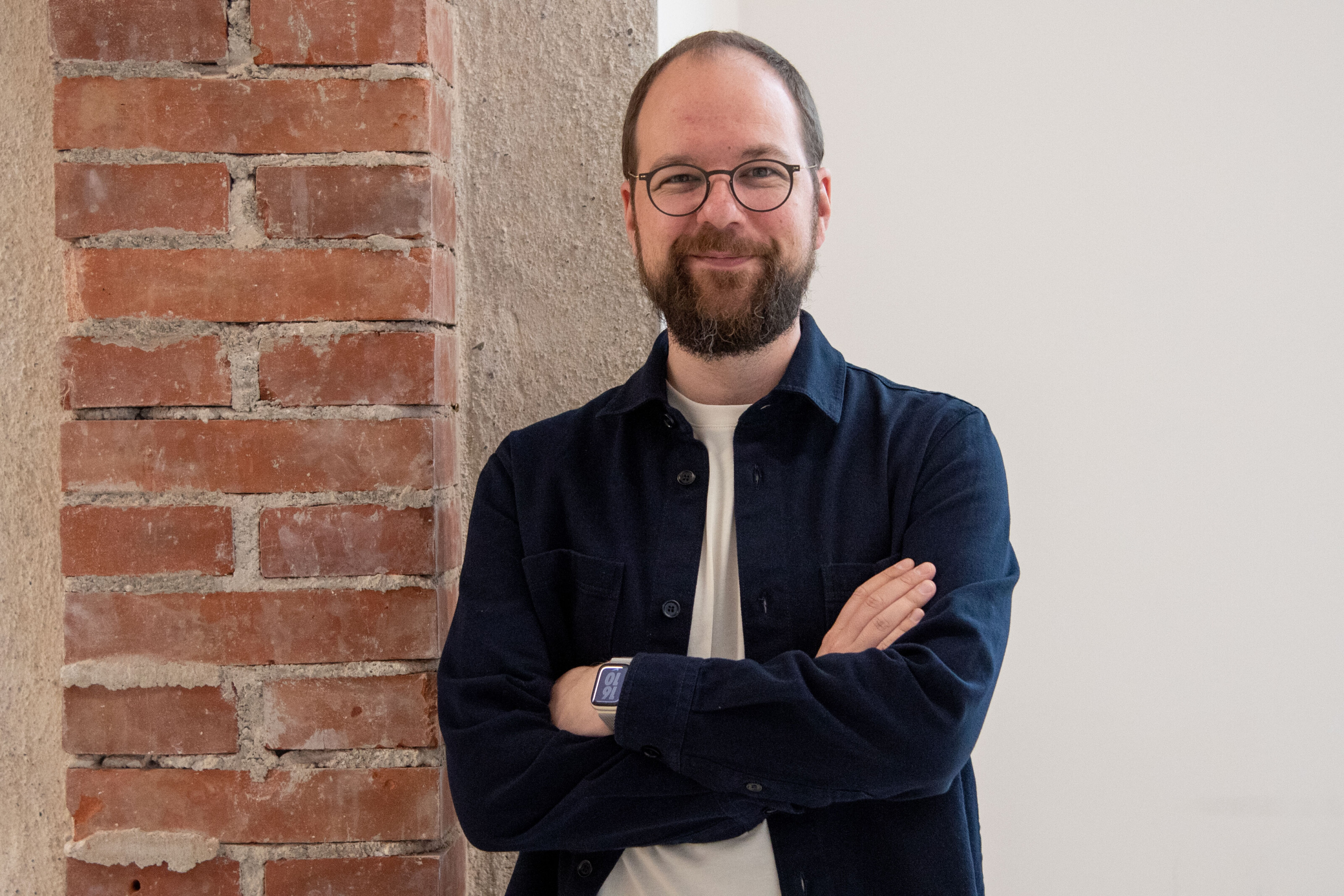
Für mich kann Kunst als Vermittlerin und Übersetzerin komplexer technologischer Konzepte wirken – sie verwandelt Abstraktes in verstehbare, ansprechende Erfahrungen, die sowohl von Einzelnen als auch von der Gesellschaft als Ganzes leichter aufgenommen werden können. [...]
Patrik Hübner
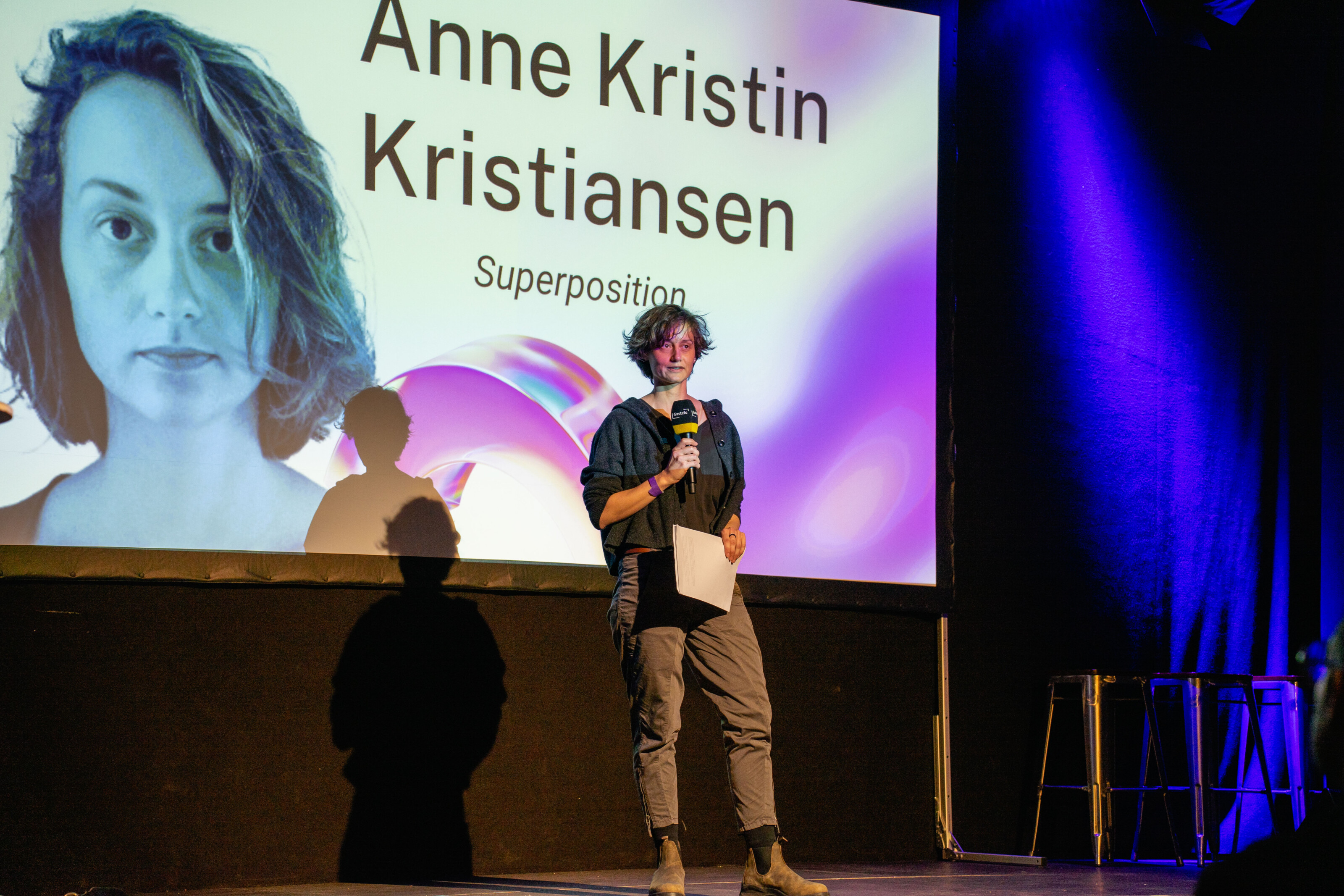
[...] Quantentechnologien der zweiten Generation faszinieren mich besonders wegen ihres Zustands der „fragilen Kohärenz“, von dem sie abhängen – und wegen des transformierenden Potenzials, das gerade aus dieser scheinbaren Zerbrechlichkeit entstehen kann.
Anne Kristin Kristiansen
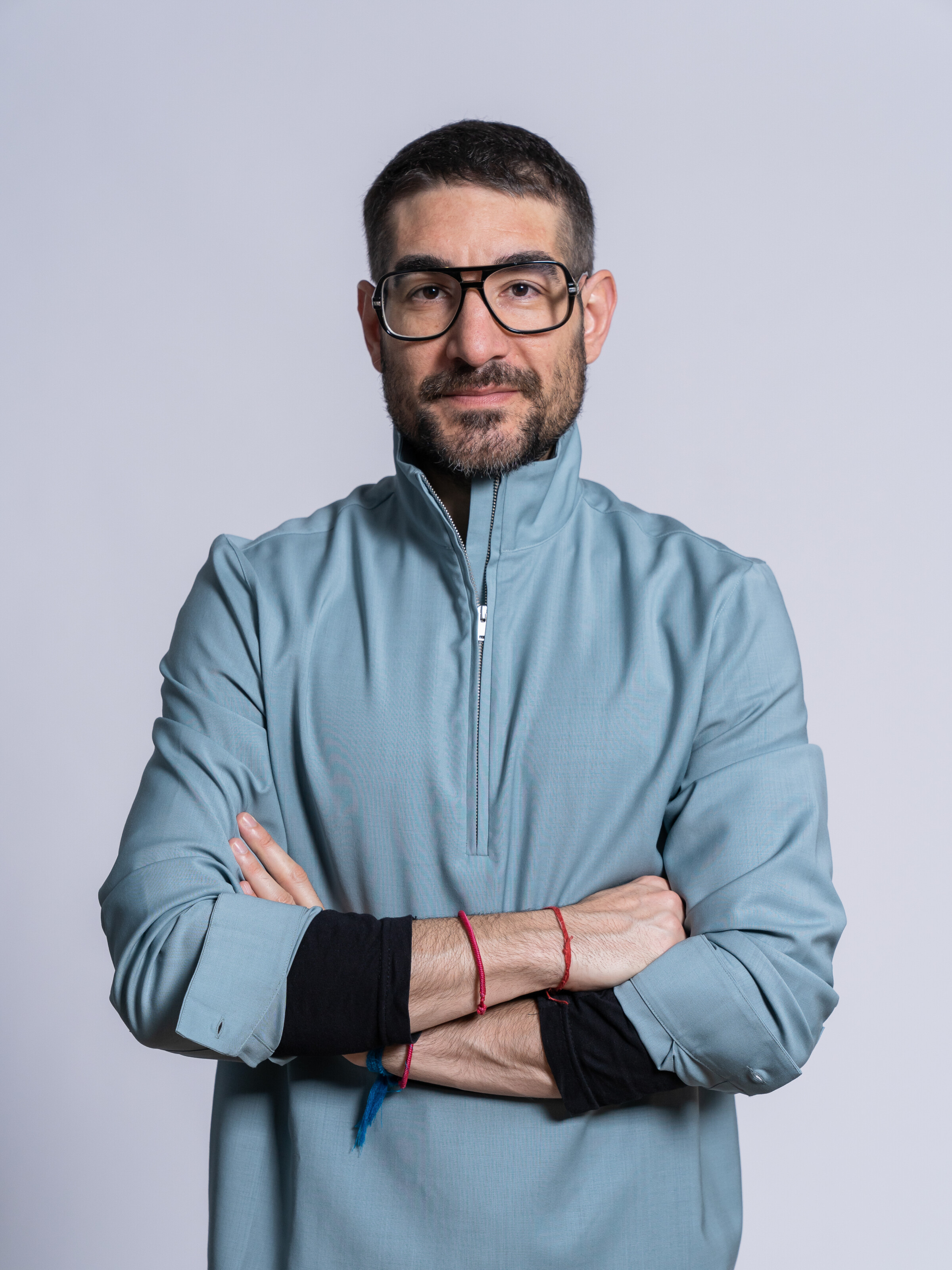
[...] Ich bin zutiefst fasziniert von den Konzepten, die der Quantenwelt zugrunde liegen, und überzeugt, dass ein tieferes Verständnis dieser Technologie der Menschheit dabei helfen kann, ihre eigenen Ursprünge und sich selbst besser zu begreifen. Dennoch müssen wir sorgfältig darauf achten, wie die Gesellschaft dieses mächtige Werkzeug „kuratieren“ und einsetzen wird. [...]
Solimán López
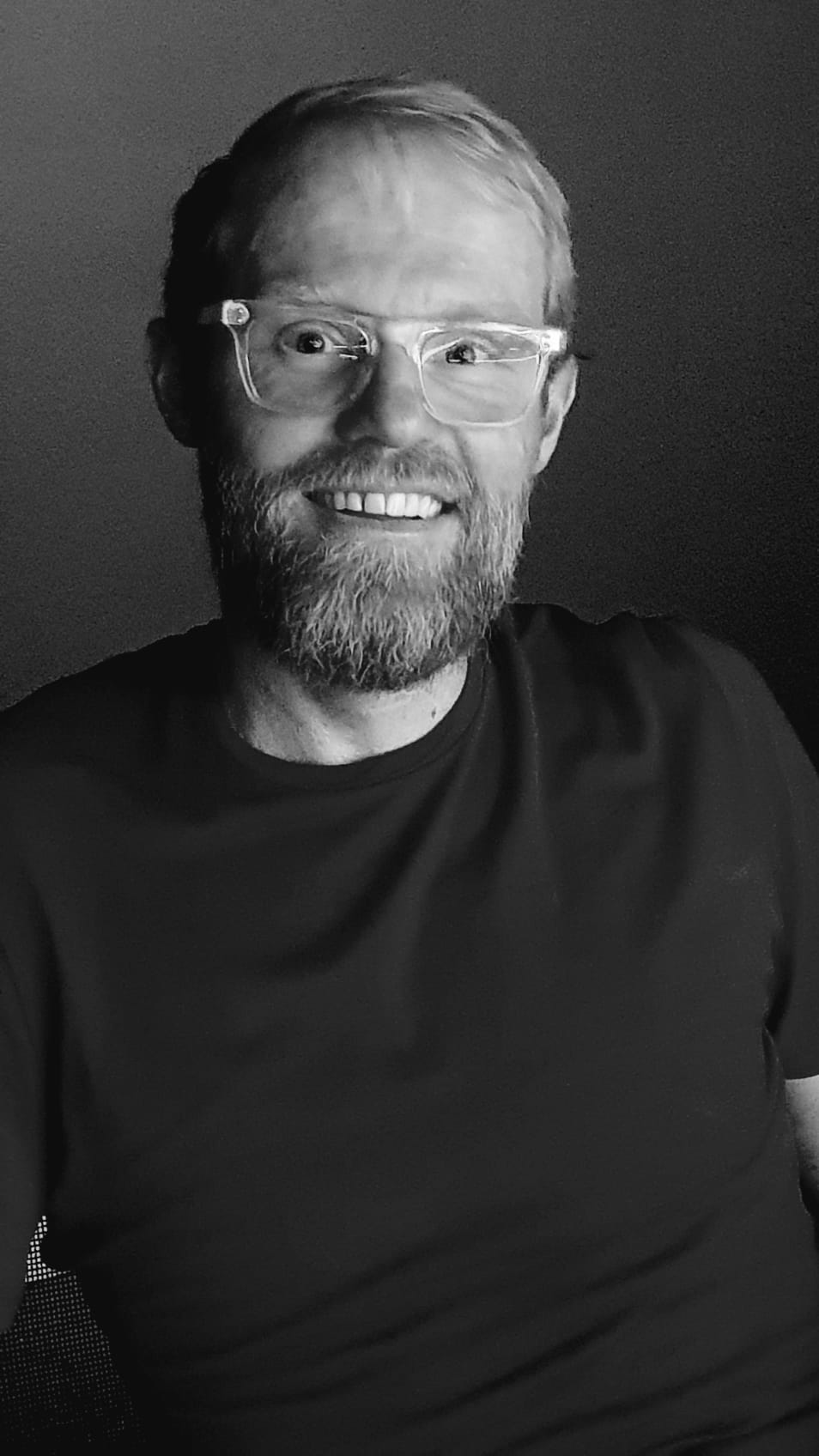
Der Raum zwischen Technologie und Nutzer ist einer der spannendsten und zugleich herausforderndsten Orte, an denen man sich bewegen kann. Begegnet man ihm mit der Logik der Technik oder mit der Perspektive der Anwender*innen? Ich finde, die Künste haben uns schon immer geholfen, diese Lücke zu überbrücken.
Benjamin Nott
Outreach und Veranstaltungen
Um die Kluft zwischen Wissenschaft und Öffentlichkeit – einschließlich Entscheidungsträger:innen – zu überbrücken, engagiert sich das Quantum Social Lab in einer Vielzahl von Veranstaltungen und Formaten. Wir richten nicht nur eigene zentrale Events aus, sondern kooperieren mit Partnern, um Foren, Workshops und andere Räume für gesellschaftlichen Dialog gemeinsam zu gestalten. Beispiele dafür sind:
-
Transatlantic Quantum Forum (2022)
Das QSL richtete seine erste offene wissenschaftliche Konferenz aus – hybrid in Zusammenarbeit mit der Arizona State University und der Yale University –, bei der über 40 Forschende ihre laufenden Arbeiten präsentierten.
-
PuzzleX (2023)
Gemeinsam mit unserem Partner Matter Inc. entwickelten wir den Quantum Cipher Garden – eine 20 Quadratmeter große Installation, die das Prinzip der Quantenverschlüsselung veranschaulicht.
-
2nd Annual Stanford Responsible Quantum Technology Conference (2024)
Urs Gasser und Constanze Albrecht vertraten die gemeinsame Projektkooperation „Building Global Capacity for Responsible Quantum Technologies“.
-
XPanse (2024)
Die Young Quantum Social Scientists präsentierten in Abu Dhabi das Quantum Medical Wonderland – eine 50 Quadratmeter große Installation, die ihre Arbeiten zur Zukunft der Medizin vorstellte. Begleitet wurde das Event von Keynotes von Urs Gasser und Fabienne Marco, die die studentischen Beiträge ergänzten und die interdisziplinäre Forschung des Quantum Social Lab einem internationalen Publikum näherbrachten.
-
International Quantum Forum (2025)
Das QSL und seine Partner veranstalteten in München ein zweitägiges International Quantum Forum. Es verband wissenschaftliche Diskussionen, einen Science Slam und als krönenden Abschluss die Quantum Arts Gala im HP8 – und schuf so einen einzigartigen Raum für interdisziplinären Austausch und gesellschaftliche Begegnung.
Community
Quantentechnologien sind mehr als wissenschaftliche Durchbrüche – sie haben das Potenzial, unsere Gesellschaften grundlegend zu verändern. Diese Transformation inklusiv, verantwortungsvoll und im Einklang mit menschlichen Werten zu gestalten, steht im Zentrum unserer Mission. Das Quantum Social Lab baut eine lebendige Gemeinschaftauf, die Wissenschaft, Wirtschaft, Politik, Studierende und Öffentlichkeit verbindet und so die notwendigen Netzwerke für ein zukunftsfähiges Quantenökosystem schafft.
Wissenschaft
Eingebettet in das TUM-Ökosystem und vernetzt mit Universitäten weltweit – darunter die Chulalongkorn University, die Universität Amsterdam, die University of Oxford und die Harvard University – arbeitet das QSL mit führenden Forschenden in gemeinsamen Projekten zusammen und fördert die Mobilität von Studierenden, um den internationalen Austausch zu stärken.
Wirtschaft
Die Entwicklung von Quantentechnologien schreitet rasant voran – angetrieben von Wissenschaft, Industrie und Regierungen. Heute übersteigen private Investitionen bereits die staatlichen Mittel, was die zentrale Rolle der Industriein der Weiterentwicklung des Feldes verdeutlicht.
Entscheidungsträger*innen
Unterstützt vom Bayerischen Staatsministerium für Wissenschaft und Kunst und als TUM Flagship Projectanerkannt, liefert das QSL strategische Impulse für Akteur*innen aus Politik, Wissenschaft und Wirtschaft. Die Teilnahme an UNESCO-Prozessen wie COMEST und die Mitwirkung am UN-Jahr der Quantenwissenschaften und -technologien unterstreichen seine Rolle in einem breiten Netzwerk aus NGOs, politischen Entscheidungsträger*innen und öffentlichen Institutionen, die gemeinsam an einer verantwortungsvollen Quanten-Governance arbeiten. Weitere Partner sind unter anderem GESDA und OQI.
Öffentlichkeit
Durch öffentliche Veranstaltungen an zugänglichen Orten maximiert das QSL seine gesellschaftliche Wirkung. Kooperationen mit Partnern wie dem SMÄK – Staatliches Museum Ägyptischer Kunst München und TECH by Handelsblatt bringen quantum-bezogene Debatten in breitere gesellschaftliche Kontexte. Über die reine wissenschaftliche Publikationstätigkeit hinaus sorgt das QSL dafür, dass seine Community vielfältig und inklusiv wächst – und dass Quantentechnologien Teil eines gemeinsamen öffentlichen Diskurses werden.
Studierende
Studierende und Nachwuchsforschende sind im QSL keine passiven Teilnehmenden, sondern zentrale Akteur*innen. Eingebunden in Projekte und Partnerschaften mit Organisationen wie Girls in Quantum, der Austrian Quantum Society und Push Quantum, gestalten sie Forschung und Outreach aktiv mit. Zu den Highlights zählen ein Science Slam und ein World Café beim International Quantum Forum 2025, die die Kreativität und Gestaltungsfreude der nächsten Generation sichtbar machen.
Policy und Wirkung
In den vergangenen zwei Jahren haben wir unsere Mission durch eine Vielzahl von Initiativen vorangetrieben:
Policy Clinics
Erstmals in Thailand im Bereich Künstliche Intelligenz erprobt, wird dieses innovative Konzept, das Prinzipien in praktisches Handeln übersetzt, nun von Urs Gasser und Fabienne Marco gemeinsam mit dem Global Network of Centers weiterentwickelt. Es entsteht ein Netzwerk von Policy Clinics und Sandboxes, das Dialog und Experimentieren auf lokaler Ebene fördert.
Dialogformate
In Zusammenarbeit mit dem TUM Think Tank hat das QSL an Formaten für Austausch und gemeinsames Lernenmitgewirkt und diese mitgestaltet – unter anderem mit Vordenker*innen wie Alondra Nelson, Markus Blume und Niklas Lundblad.
Wissensaustausch
Das QSL bringt sich aktiv in internationale Diskurse ein – von der Physik bis zur Diplomatie. Zu den Höhepunkten zählen das Geneva Science and Diplomacy Anticipation Summit, das UNESCO Global Forum, TECH, GiTex Europe, das KI Big Bang Festival und die Deutsche Physikalische Gesellschaft.
Impact Building
Unsere Arbeit basiert auf Dialog, zielt jedoch letztlich auf konkrete Wirkung. Durch die Vernetzung von Wissenschaft, Politik, Wirtschaft und Öffentlichkeit stellt das QSL sicher, dass Quantentechnologien im Sinne gesellschaftlicher Bedürfnisse entwickelt werden. Jede Policy Clinic, jedes Forum und jeder öffentliche Austausch stärkt die Grundlagen für inklusive und verantwortungsvolle Innovation – und macht das QSL zu einem Katalysator langfristiger Transformation im Quantenökosystem.
